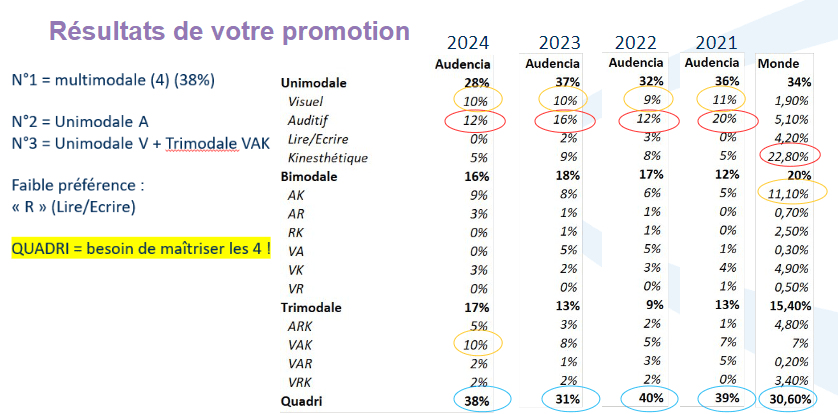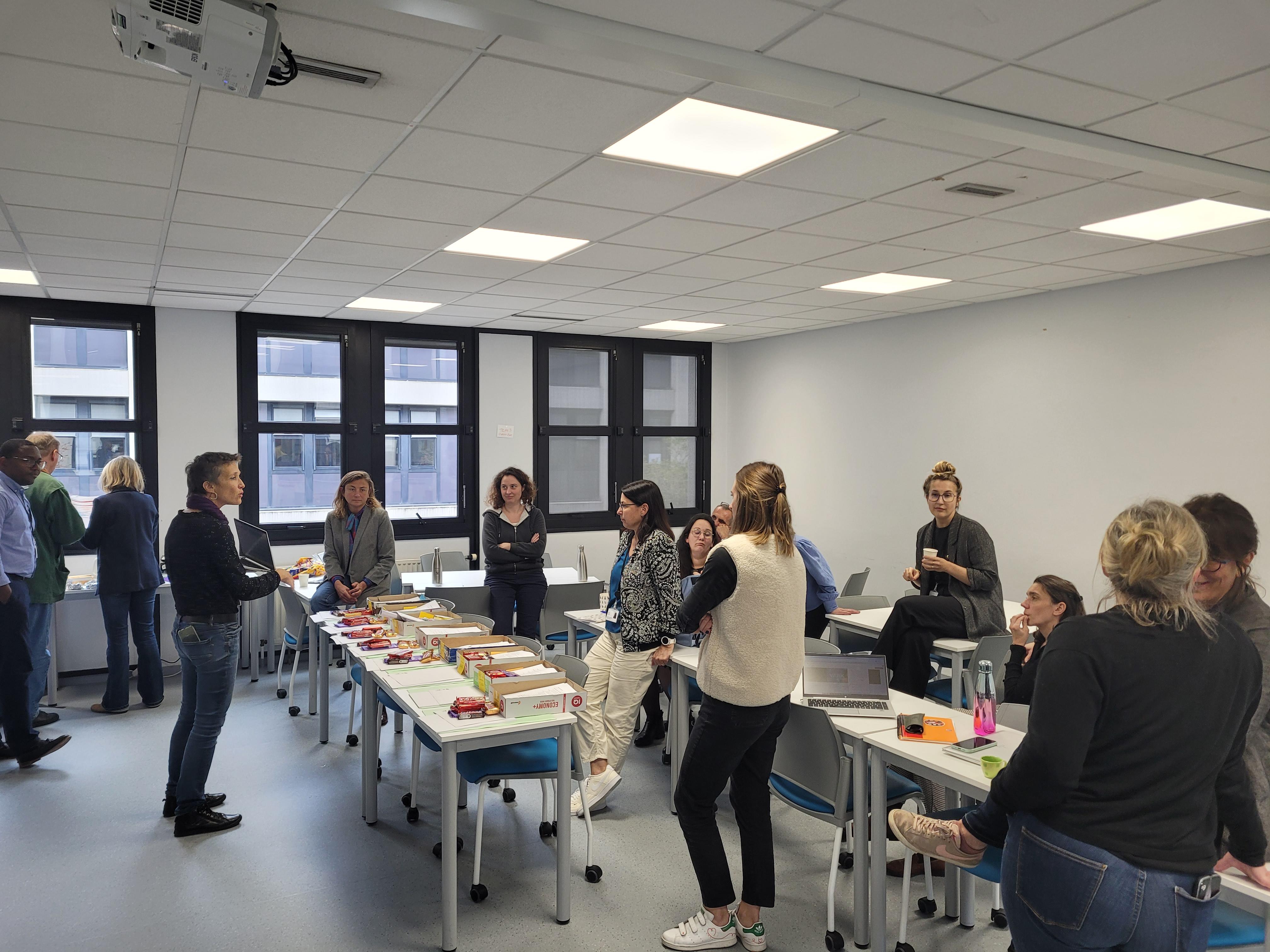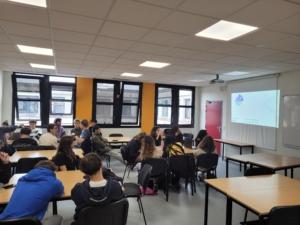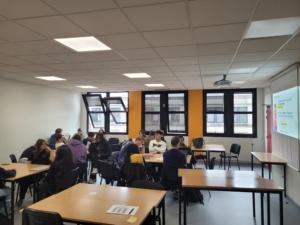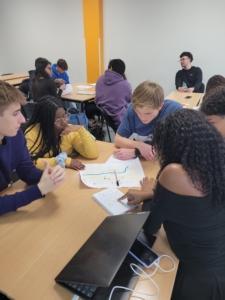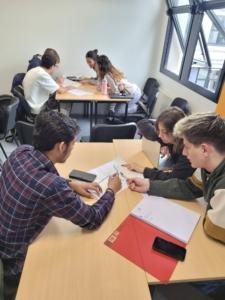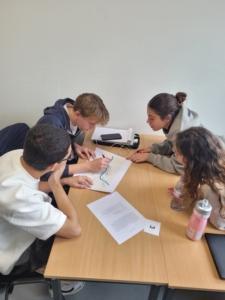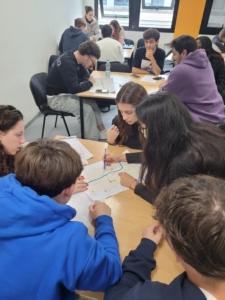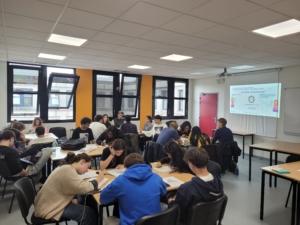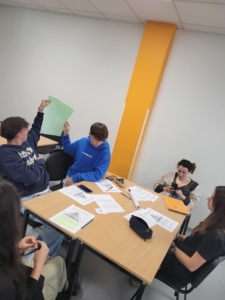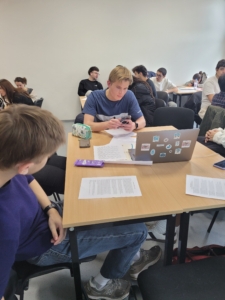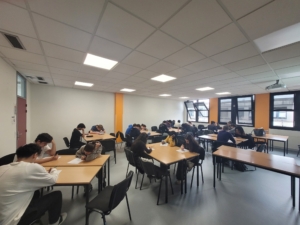- Home
- >
- FACILITATING AND EVALUATING STUDENTS
- >
- Inspiring events
- >
- Learning Preferences – VARK Bachelor 1st Year Workshop
Discover the learning profile of a post-bac student in 2024!
In 2020, at the time of the lockdown and to help first-year Bachelor students, an online teaching device had been created, allowing them to discover their learning preferences, especially through the test available online.
From 2021 to 2023, this playful VARK workshop, in the form of mini games, was designed by Dan Scott EVANS, Céline LEGRAND and Erika LOGEAIS and then perpetuated as one of the reception devices essential for entry into higher education for post bacs. Each time, methodology animation, methodological sheets were given to students to help them.
In parallel, the teaching team has spread this insight to its peers. Direct applications have been introduced in some courses, particularly in subjects deemed difficult and technical such as the fundamentals of law. Moreover, the contractors participating in Audencia, during their back-to-school meeting are also sensitized on these pedagogical techniques.
Interesting elements collected on the learning profile of Bachelor’s
The data collected during the three years tend to show that:
- Students have many multimodal profiles and in particular VAK (visual-auditory-kinesthetic) profiles.
- Significant number of students have a strong A dominant (auditory), which is probably a post-COVID effect.
- The R component (read/write) is the least represented. Students therefore have more and more difficulty in focusing on a long text.
Such data makes it even more important to think about how courses can be designed/animated, or the rules that need to be put in place in class to maximize learner attention, materials... Many applications are possible and the field of view is unlimited!
A new workshop format in 2024
At the end of these 3 years, the 3 designers have made the following assessment and have made the following statement. The workshop was appreciated by students, but considered a little too «playful». In 2024, a new version was created based on the elements of previous years and with direct application in the course.
The objectives of the workshop:
- Learn about your own learning preferences.
- To make people aware that learning forms are decoding the real, and that knowing them for yourself will serve throughout life, including professionally.
- Practice these preferences and associated learning techniques in their courses.
Two group workshops were designed
Le premier atelier A fun 30-minute workshop, where a fictional character, Jeanne, a Bachelor’s degree student, follows an integration session in her new business and will have to go 2 times in a neighborhood.
- Once LISTENING to instructions given orally to allow you to go on a map to a training place.
The students were able to use their ability of attention, spatial orientation, understanding of the instructions given in French (so experience a form of empathy), in a limited time (8 minutes).
- Once READING written instructions and a fake WIKIPEDIA page to reach a restaurant.
This time, students had to sort the information to get their bearings and once again focus on what was essential.
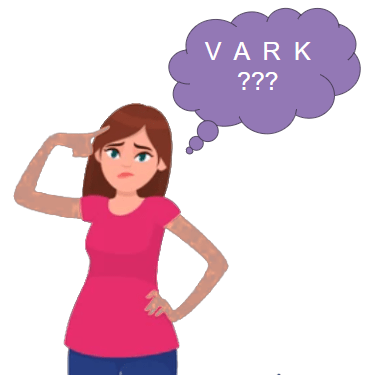
We could see that curiously, while we thought the second reading exercise much simpler, students were less successful than in the listening exercise, which tends to demonstrate by facts the data collected in the online tests.
We were able to exchange quickly at the end of some reflexive feedback.
| Audio challenge We find the 4 VARK dimensions |
Reading challenge We find the 4 VARK dimensions |
|
V – you look at the map A – you listen to the instructions + auditory challenge + R – reading the brief + the scribe takes notes K – manipulate the map, locate yourself and trace the path |
V – you look at the map A – you listen to oral instructions + exchanges between peers R – reading and memorizing the brief/instructions K – manipulate the map, locate yourself and trace the path |
Le second atelier of 1h30 was on a text (Maslow’s pyramid) taken from an economics course that students were taking at the time. The objective was to teach them in a team and then to pass an individual quiz whose result gave a team score.
Students also had a learning constraint:
- Teams were not entitled to any computer access, only resources like pencils/ paper/ post its/ markers/ flashcards.
- Other teams did not have the right to paper but unlimited access to internet including AI. Ideas for using AI were provided to them (doc).
Overall, the paper teams performed better than the digital teams. We also noticed that groups really learn differently: some were learning alone without communicating to others, others on the contrary were constantly talking in teams and exchanging ideas... They should have gone further and had more time to compare these behaviors with their VARK results.
Conclusion
A la fin nous avons demandé à chaque groupe d’expliquer ce qui avait été facile / compliqué avec les contraintes données (uniquement digital, uniquement papier), et chacun a exprimé des conseils à ses pairs. Parmi ceux-ci : surligner les mots clé, répéter plusieurs fois, noter, demander à faire des quiz à l’IA, faire des résumés… Un potentiel à approfondir lors de prochaines sessions afin de mieux faire le lien avec les cours !



